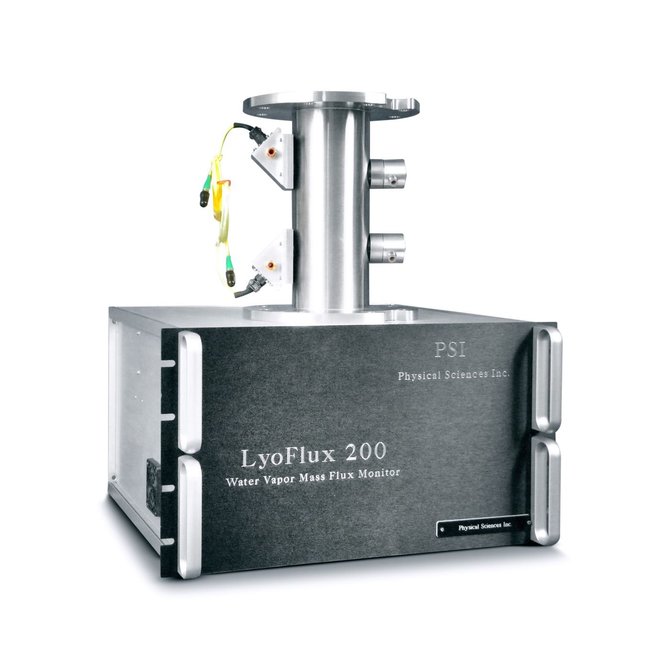
LyoFlux® 200 TDLAS Sensors
Transform your lyophilization optimization workflow with the LyoFlux® 200 TDLAS (Tunable Diode Laser Absorption Spectroscopy) sensors, the only commercial sensors that are capable of accurately and sensitively monitoring water vapor mass flow during freeze-drying.
- Scale-up with ease – determine heat transfer coefficients (Kv) in one experiment and without the need for time-consuming manual processes
- Simple installation – the compact LyoFlux 200 can be installed in various sizes of developmental freeze dryers
Interested in Learning More?
Overview
If you’re optimizing the lyophilization of biologics, then you’re likely investing considerable amounts of time and money into determining product attributes, such as temperature and resistance to vapor flow. Designed with product quality in mind, the LyoFlux® 200 TDLAS, a near-infrared (NIR)-based PAT tool, helps accelerate and streamline your lyophilization process for real-time, continuous monitoring of product attributes in laboratory, pilot, and production scale lyophilization cycles. The LyoFlux 200 TDLAS offers:
Application Examples
- Drug Development
- Production/Manufacturing
- Highly sensitive end-point determination for both primary and secondary drying
- Continuous mass balance determination
- Real-time calculation of average product temperature and resistance
- Assessment of heat transfer coefficients (Kv) of vials. Unlike other types of measurement sensors, the LyoFlux 200 TDLAS sensor is non-invasive, enabling you to determine product attributes without intervention, avoiding any compromise of product sterility in an aseptic environment. Whatever your need, the LyoFlux 200 TDLAS sensor is up for the challenge
LyoFlux® is a registered trademark of Physical Sciences Inc., Andover, MA, USA. Image supplied by kind permission of Physical Sciences Inc.
Additional Details
Features & Benefits
- Simple scale-up. Our LyoFlux 200 TDLAS technology can be applied from laboratory to production scale
- Improve product quality. Quality by Design (QbD) approach enhances your understanding of product attributes and their impact on product quality
- Maintains aseptic conditions. Non-invasive measurement ensures product sterility
